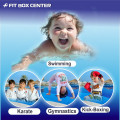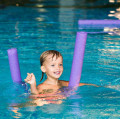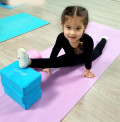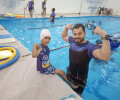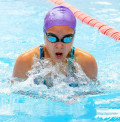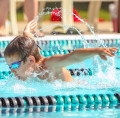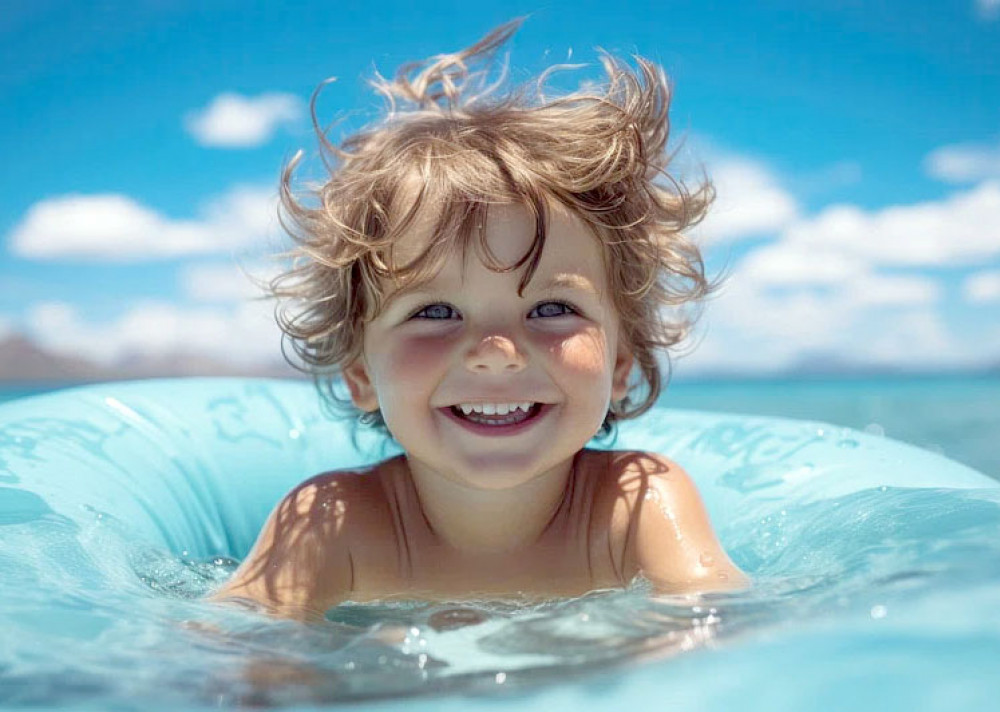
Baby swimming lessons are becoming increasingly popular among parents
2024-10-12 - swimmingWhy Start Swimming Early?
You might wonder, "Why should my baby learn to swim at such a young age?" The answer is simple: swimming is a life skill, and early exposure to water boosts their physical, emotional, and cognitive growth. Babies naturally have a familiarity with water, as they’ve spent nine months in the womb, making early swimming lessons a smooth transition. These lessons encourage muscle development, improve coordination, and even enhance problem-solving skills as they learn to navigate in the water. Plus, it's a bonding experience that fosters trust between parents and children.
The Role of a Swimming Instructor
A qualified swimming instructor brings expertise and ensures that each lesson is safe and effective. They are trained to teach water safety in a calm, structured environment, guiding babies through various exercises that promote confidence in the water. Most importantly, they know how to adapt their approach based on the baby’s comfort level, ensuring the sessions are enjoyable rather than intimidating.
Baby Swimming Skills: What to Expect
When it comes to baby swimming skills, you’ll see progress in stages. Early lessons often focus on basic water safety, such as learning to hold their breath and getting comfortable in the water. Instructors then introduce floating techniques to teach balance, followed by simple movements like kicking and reaching their arms. These skills lay the foundation for future swimming, allowing babies to become independent swimmers as they grow older.
Benefits of Baby Swimming Classes
The benefits of baby swimming classes are numerous. Beyond safety, swimming enhances motor skills like coordination and balance. Babies also get a chance to socialize with others, building emotional resilience and confidence. The water offers a unique sensory experience, stimulating brain development while making the process enjoyable. Many parents notice improved sleeping patterns and eating habits after regular swim lessons, as the physical activity helps tire out their little ones.
How Instructors Adapt Lessons for Different Ages
Swimming instructors tailor lessons to suit the baby’s age and ability level. For example:
6 to 12 months: Lessons are playful, focused on getting babies accustomed to the water through gentle splashes and floats.
12 to 24 months: Instructors introduce basic techniques like kicking and paddling, often with the help of flotation devices.
2 to 3 years: Babies become more adventurous, practicing more advanced skills like submerging and floating without assistance.
This progression ensures that as your baby grows, so do their water skills, making each stage of learning fun and appropriate for their development.
Safety First: Key Considerations for Parents
Safety is always the top priority in baby swimming lessons. Before enrolling, parents should ensure that the instructor is certified and has experience with infants. It's also crucial to check that the pool is well-maintained, with a comfortable water temperature for babies. During lessons, parents should monitor their baby’s comfort and avoid pushing them beyond their limits. Swimming is meant to be fun, and it’s important to create positive experiences around water.
Common Challenges and How Instructors Handle Them
It’s not uncommon for babies to be a little hesitant around water. Some might have a fear of submersion, while others might struggle with short attention spans. However, professional instructors are equipped with techniques to address these issues. They use toys, songs, and games to make the lessons enjoyable, gradually building the baby’s confidence over time.
Fun Games Instructors Use to Teach Swimming
Swimming lessons for babies aren’t just about technique; they’re about fun! Instructors often incorporate toys like floating ducks or colorful rings to encourage babies to reach, splash, and move. Games like “Ring Around the Rosie” or simply blowing bubbles in the water create a playful environment where babies can learn without even realizing it.
How to Prepare for Your Baby’s First Swimming Lesson
Your baby’s first swimming lesson can feel like a big milestone, but preparation helps ensure a smooth experience. Here’s what to bring:
Swim diapers.
A cozy towel for after the lesson.
A swimsuit for you, as many classes are parent-involved.
A favorite toy or comfort item to soothe your baby.
Parents should expect the first few lessons to be more about acclimatizing the baby to water rather than mastering any specific skill. Be patient, and enjoy the process!
What to Look for in a Baby Swimming Instructor
Not all instructors are created equal. When choosing a baby swimming instructor, consider their certifications, experience, and how they interact with both babies and parents. A good instructor is patient, communicative, and understands how to make each lesson engaging and safe. Look for someone who creates a positive atmosphere, where learning feels like play.
The Long-Term Benefits of Baby Swimming
The benefits of starting swimming early extend far beyond the baby years. Babies who learn to swim at an early age often develop into confident swimmers, which translates to safer water experiences in the future. Additionally, the physical activity promotes cardiovascular health, improves coordination, and fosters a love for exercise that can last a lifetime.
Conclusion
Baby swimming lessons offer a fantastic opportunity for early development, combining physical activity, safety education, and fun. With the guidance of a professional instructor, your baby can gain confidence in the water while developing essential skills that last a lifetime. Whether you’re looking to build their motor skills, improve their social interactions, or simply give them a head start on swimming, the benefits are undeniable.
.


